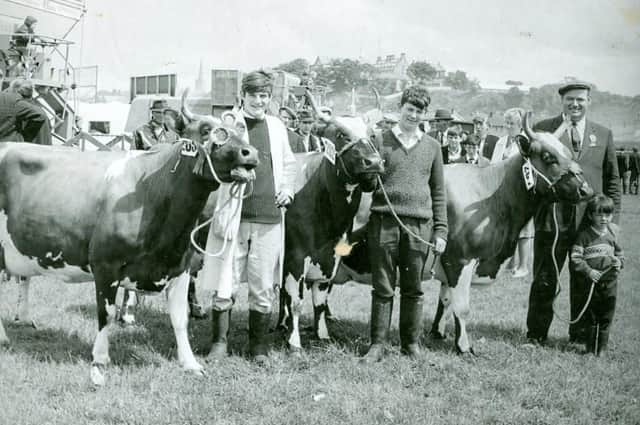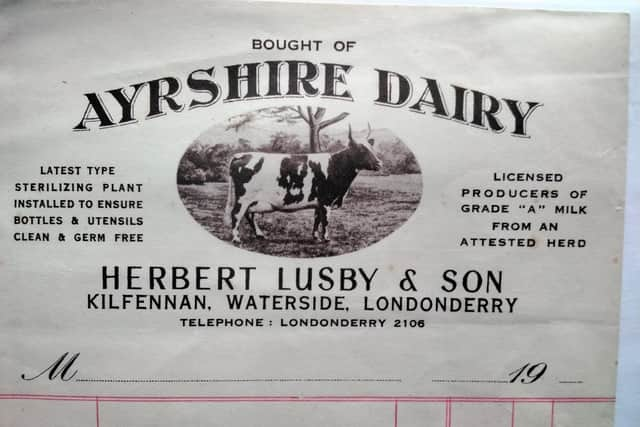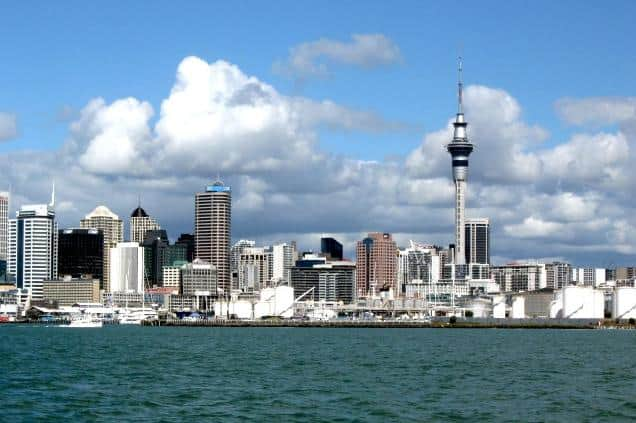Prize bull unlocks tale of two Derry farms, the famine and NZ diaspora


The transaction piqued the interest of Vincent Lusby whose father Noel and grandfather Herbert raised Ayrshire cattle at Kilfennan Farm from the 1920s to the 1980s.
Among the best-known cattle-breeders in Ireland the Lusbys founded the Kilfennan Ayrshire dairy herd and later the Glenkeen Limousin herd, which were reared for beef, in Ardmore, and won prizes all over the country for their champion animals.
Advertisement
Hide AdAdvertisement
Hide AdThe rezoning of land for housing from the 1960s eventually brought this golden era of animal husbandry to an end with the old Kilfennan Farm gradually encroached upon by an expanding Waterside. Noel Lusby passed away at the age of 78 in 2007. However, the Kilfennan Farm name lives on.


“In pedigree cattle breeding, the cattle are named using the farm name as a prefix. Therefore I was surprised to recently find a top-rated Ayrshire dairy bull in the US from New Zealand using my father’s herd name, ‘Kilfennan’.
“I contacted the owner, a vet from New Zealand called Suzanne Macky, who confirmed that her family owned Kilfennan Farm in Derry during the 1840s and also one at Coshquin.
“Subsequently, the Mackys from Derry founded two Ayrshire dairy herds in New Zealand, naming them after their ancestors’ farms in Derry - Kilfennan and Coshquin,” explains Vincent.
Advertisement
Hide AdAdvertisement
Hide AdSuzanne alerted Vincent to an incredible record of correspondence from the time of An Gorta Mór (The Great Hunger) which recounts the Macky family’s emigration from Derry.


The Macky family papers include interesting detail about uprisings, recession, rents, landlords and political views from relatives visiting from America as well as the Gold Rush. One of the letters is addressed from Thomas Lindsay Macky to Elizabeth (Kitty) Cochrane, his future wife. Dated September 4, 1848, it was dispatched from Gregory’s Boarding House, Cheapside, London, while Thomas was en route to Auckland.
“Well, I started from Derry on Thursday at five o’clock in the Maiden City and got into Liverpool next day after a most delightful passage of 20 hours.
“The sea was as calm as a well the whole day and I was not the least sick. I stopped in Liverpool till half-past eight o’clock that night and started on the train to London (I had Jos Cherry with me the whole way from Derry and he stops with me). We got into London on Saturday morning at five o’clock,” wrote Thomas.
Advertisement
Hide AdAdvertisement
Hide AdBorn at Coshquin on December 30, 1827 Thomas was just twenty when he made the voyage to the antipodes. In London the young emigrant visited Willis & Co. shipping agents and put his luggage on board the Duke of Portland which he described as a ‘very fine ship’. He visited the sights of London including St. Paul’s Cathedral, which was located next to his digs.
“I trust the time is not far distant when we will meet again when I arrive in Auckland I will do all I can and write you the result; I hope in whatever way you may come you will be with me again 18 months hence.”
Thomas’ father John Macky was born in 1785. He was said to be a relative of the United Irishman William Orr who was executed for treason at Carrickfergus in 1797 and in his famous speech from the dock declared ‘if to have loved my country - to have known its wrongs - to have felt the injuries of the persecuted and to have united with them and all other religious persuasions in the most orderly and least sanguinary means of procuring redress – if those be felonies, I am a felon’.
At the time of the An Gorta Mór and Thomas’ emigration John was finding it difficult to maintain his two farms at Coshquin and Kilfennan.
Advertisement
Hide AdAdvertisement
Hide AdIn a letter addressed to Thomas and James, his other son who was also in New Zealand, dated, January 29, 1849, John sent tidings from home.
“I trust ere this that my dear Thomas is with you happy and comfortable and that you are all happy and well and thank God we are in good health. We received your letter dated July 31 on December 1. We rejoice to hear of all your welfare and we also received a number of newspapers at the same time.
“My dear Thomas, I hope you had a comfortable passage and that your health has been good and trust you will be contented and happy. There has been no changes of any consequence since you left us unless this, that your Cousin William Macky of Lisfannon has started off to America.
“He sailed from Liverpool for New York the day before Christmas. Mrs. Macky and children are still in Lisfannon and what they mean to do I cannot say,” he writes.
Advertisement
Hide AdAdvertisement
Hide AdThe Macky paterfamilias went on to describe the workaday vicissitudes of keeping the farms at Coshquin and Kilfennan going in the midst of the famine.
“I was regretting before you went away that I had sold Kilfennan oats. However, the price of oats has lowered much and it is now selling at 8/- per stone and not thought to advance.
“The times are certainly bad for farmers in this country. I have not sold any of my hay yet. I intend to commence now as the price is not more than 30 shillings per ton. J A Macky sold all his at that price months ago and no advance yet, so that it is not easy to make up money to answer all demands at present.
“We are drawing a good bit of manure from Derry this year to Coshquin. We have now, we think, nearly what will do us. We intend manuring the open field and the two fields at the Glen. We have got no manure drawn to Kilfennan as yet. We have eight acres of it planned for manure if we can get it accomplished, but how it will be accomplished I do not yet know. This day will finish the planting of the Whitelee.
Advertisement
Hide AdAdvertisement
Hide Ad“For all we have but the three horses that can work. The young one is thriving well, but we are at a great loss for a fourth, but we must do the best we can,” he related.
The Macky family history is a typical story of hardship and emigration even though they were spared the horrors of Ireland’s poorer districts to the west.
“Their struggle with planting potatoes and paying rent to Lord Templemore when farm produce prices were very low but food still unobtainable for the poor is a social diary of the famine and its impact on a Derry family,” as Vincent notes.
According to the Macky papers Kilfennan was sold to a Mr. Glenn in 1852 while Coshquin was also disposed of at an unknown date. In 1854 John Macky and his wife Elizabeth boarded the Cashmere and joined their sons in Auckland on August 22 of that year.